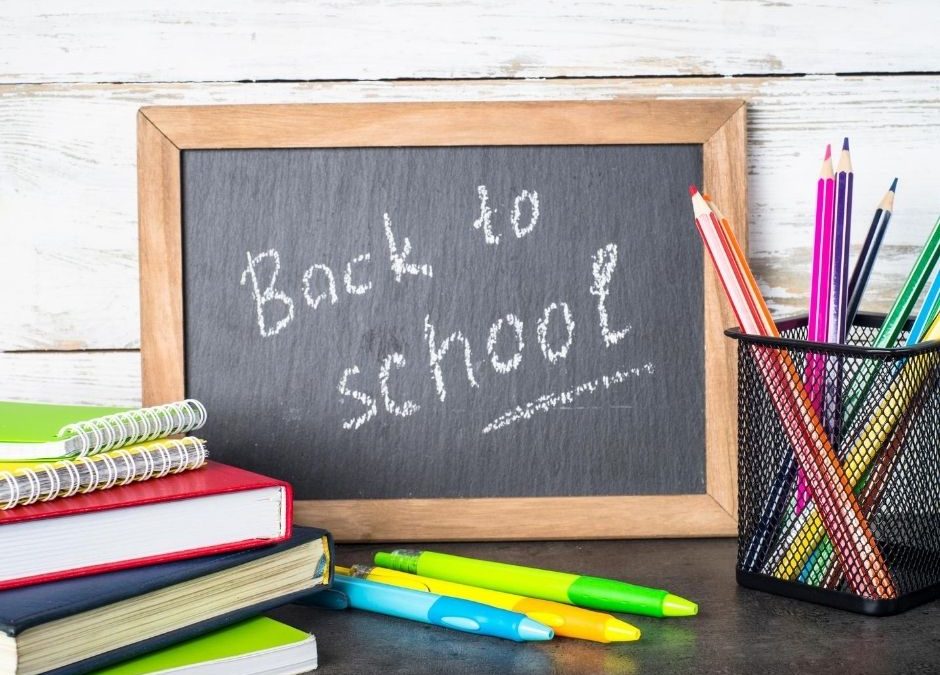No doubt, going back to school this month will look very different from anything we’ve ever experienced. Even now, just a few weeks away, families don’t know for sure if their children will be returning to the physical classroom.
Many children are looking forward to a return to school, and some semblance of normalcy. For others, the uncertainty of COVID-19 will exacerbate feelings of anxiety and fear they typically feel at the start of the school year – especially the estimated 20 percent of adolescents and teens in the United States struggling with mental health issues.
In a normal year, the school environment demands many things that summer doesn’t including the ability to sit still, get organized, stay on task, adapt to a structured schedule and navigate challenging social relationships. In 2020, kids also have to contend with health worries, venturing out for the first time after six months at home, social distancing and masks, as well as the potential of school shutting down again.
How you can help
By being proactive and vigilant parents can help children cope with the negative feelings and anxiety they may be having.
- Assess the problem – Parents must take note if a student is showing signs of prolonged sadness or nervousness about school. Is your child experiencing stomach aches, trouble sleeping, and irritability? Those symptoms could indicate that they are struggling with stress, anxiety or depression. Reach out to your child’s doctor or a mental health professional for guidance.
- Empathize – Let your child know that it’s normal to feel anxious, that their feelings are understandable, and talk with them to determine what exactly is making them feel anxious so you can work together to address the issue.
- Work on Coping Skills — Kids who struggle with mental health issues may already have a toolbox of coping skills that you can review and discuss with them. Talk to your student about past experiences that have triggered negative feelings and remind them of what they did in those situations to feel better. There are also many resources available to help kids cope with the return to school. Start by taking a look at Mental Health America’s back-to-school kit (This is the kit from 2019, but still very relevant.)
- Prepare – Anxious kids often feel better when they are given all the information about the start of school so they can process it in advance. Walk your child through their schedule for the first week. Without overwhelming them, explain to them the expectations for keeping a distance from other students, wearing masks, handwashing and other coronavirus-related precautions. Alert them to what their classes may look like and that some of their friends may not be coming back initially. Be honest with them about the potential for last-minute changes and adjustments.
- Reassure – If your student is fearful about becoming sick, have an age-appropriate and honest conversation with them about COVID-19 risks and reassure them about the many precautions their school and teachers are taking to keep the community safe. Consider sharing helpful data or the school’s mitigation plans with them.
- Limit screen time – The internet has been an invaluable tool for learning and social connection during the pandemic. But countless studies have shown that too much screen time – and some of the content kids are exposed to online – exacerbates psychological distress, contributing to feelings of social isolation, depression and anxiety. Help your child determine when the internet stops being useful and becomes harmful.
- Stress the Positives – Even if it looks a bit different this year, remind your student about the things they like about school – friends, activities, fun classes, etc.
- Reach out – Have conversations with your school and teachers about how to support your student. Take advantage of community and online resources. Make sure your child has access to the mental health care they need. Consider helping your child find an online support community such as groups helping adolescents and teens deal with bullying, sexual orientation, or gender identity.
If you notice your adolescent or teen struggling with the return to school, I am here to help. Contact me at (303) 542-0180 to make an in-person or teletherapy appointment.
If your child needs to talk to someone immediately or is experiencing suicidal thoughts, text the Crisis Text Line at 741-741 or call the National Suicide Prevention Lifeline at 1-800-273-8255.

